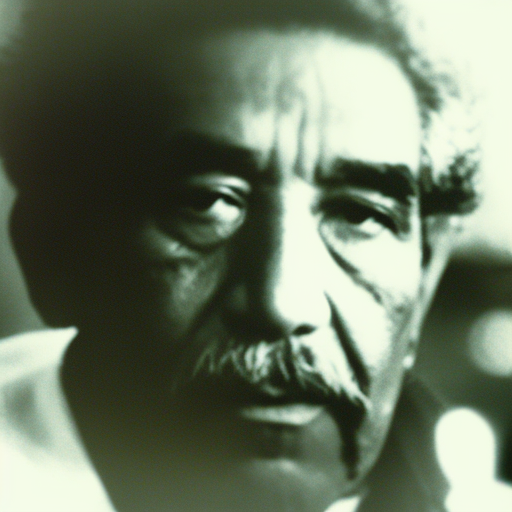Gabriel García Márquez: A Literary Icon
Gabriel García Márquez, born on March 6, 1927, in Aracataca, Colombia, was a renowned Colombian author and journalist. He is widely regarded as one of the most significant writers of the 20th century and a pioneer of the literary style known as magical realism. García Márquez’s works, such as “One Hundred Years of Solitude” and “Love in the Time of Cholera,” have captivated readers around the world with their vivid storytelling and imaginative narratives.
Early Life and Career
García Márquez grew up in a small town in northern Colombia, surrounded by his grandparents’ stories and the lush landscapes that would later inspire his writing. After completing his secondary education, he moved to Bogotá to study law but soon realized his true passion lay in writing. He began his career as a journalist, working for various newspapers and magazines, where he honed his skills as a storyteller and developed a deep understanding of the social and political issues of his time.
Magical Realism and Literary Success
García Márquez’s unique writing style, characterized by a blend of reality and fantasy, became known as magical realism. In this genre, he seamlessly integrated mythical elements into everyday life, creating a sense of wonder and enchantment. His masterpiece, “One Hundred Years of Solitude,” published in 1967, catapulted him to international fame. The novel tells the story of the Buendía family over several generations, blending history, myth, and reality to explore themes of love, solitude, and the cyclical nature of life.
Political Activism and Exile
Throughout his life, García Márquez was deeply involved in political activism, advocating for social justice and human rights. He maintained a close friendship with Cuban leader Fidel Castro and was a vocal critic of U.S. imperialism. His political beliefs often found their way into his writing, reflecting the turbulent political climate of Latin America during the 20th century. However, his activism also made him a target of censorship and persecution. In the 1980s, he went into self-imposed exile in Mexico to escape the political repression in his native Colombia.
Later Works and Legacy
During his exile, García Márquez continued to write and publish acclaimed works, including “Love in the Time of Cholera” and “The General in His Labyrinth.” These novels further solidified his reputation as a master storyteller and expanded his global readership. In 1982, he was awarded the Nobel Prize in Literature, becoming the first Colombian and one of the few Latin American authors to receive this prestigious honor.
García Márquez’s influence on literature and culture cannot be overstated. His works have inspired countless writers and readers, and his magical realism style has become a defining characteristic of Latin American literature. His ability to capture the essence of his homeland and explore universal themes with a touch of the extraordinary has made him a beloved figure in the literary world.
Gabriel García Márquez passed away on April 17, 2014, but his legacy lives on. His works continue to be celebrated and studied, and his impact on the literary landscape remains profound. Through his storytelling, García Márquez transported readers to magical worlds while shedding light on the complexities of human existence. His contributions to literature have left an indelible mark and secured his place as one of the greatest writers of all time.












